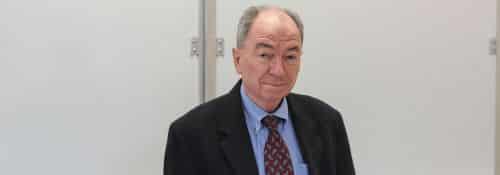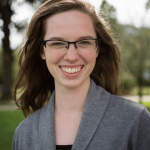
The Danger of the Liberal Arts
Written by Klara Holscher
At the beginning of the hour he entered the room, a quiet man. Disquieted, we left the room at the end of the class, minds awhirl. We had been warned. “There is some danger in the liberal arts,” he told us in that first lecture. “If you wanted to stay where you’re at, you should have become a dental hygienist.” I didn’t tell him that in my childhood, entering the world of cavities and dental chasms had been my modest aspiration. But something other than my idea of common sense propelled me into the astonishing world of Dr. Fennell’s classroom, and into an uncommon store of wisdom.
After Dr. Fennell handed out the syllabi for “Philosophy of Education,” I looked down at the first page, which was covered in quotes from individuals such as G.K. Chesterton and Socrates. “You cannot carry away doctrines in a separate vessel,” Socrates cautioned me from the page. “You are compelled, when you have handed over the price, to take the doctrine into your very soul by learning it, and so to depart either an injured man or a benefited man.” This bore little significance in my mind until Dr. Fennell explained that the only way we could truly evaluate anything would be to give ourselves over to it. “No one can think for you,” he continued, making it clear that each of us, if we in fact cared to know it, would have to go to the trouble of finding out the truth. In order to begin this discovery, we first had to lay aside our own ideas long enough to hear what others had said before us. He encouraged us towards an honest encounter with ideas, though openly admitting that intrinsic to such an encounter, and making it possible, was a sort of vulnerability. Beyond that point, however, beckons the promise of real understanding.
That first day I and my classmates struggled to understand. Signs of inward battles being waged were evident in the half-framed, incoherent questions we sputtered forth. Behind the spoken questions lay the unframed wonderings: “What did this mean?” “Was it true?” “If it was, did we dare go forward?” Dentistry might not be such a bad option after all, and the dental office a far less dangerous place than the battle field of ideas. Ideas could steal souls; dentists only take out teeth.
Yet, we dared, and found that we had entered a timeless dialogue spanning generations. Certainly, there were ideas to grapple with, and some that we disagreed with after taking our turn to wrestle with them. But there were also insights that spoke to us with all the familiarity of truth; spoke as if they had been deeply part of us all along, though never before illuminated.
These truths are part of “something wondrous,” of which we are beneficiaries, Dr. Fennell told me as I perched on a chair in his office last week. He expounded, “It seems to me that we ought to pay very close attention to what made Western Civilization possible and also to what is necessary to preserve it. Preservation depends on education broadly understood.”
I nodded, though silently wondering what “education broadly understood” meant. Reading my thoughts, he explained, “What must be done to preserve our world is to teach that world, and that is done through a variety of mechanisms. Fundamentally it is done by systematically entering into the lives of the young when they are very new to the world, and continuing to have that influence through the formative years, which goes well beyond eighteen. But it has to start early and it has to continue, and I would suggest that the most important things are done earlier, but still vital things are done later.”
Dr. Fennell emphasized that teaching the next generation to care about the things that we care about is at the root of this preservation. When one generation fails to pass on its treasures and commitments to the next, “we begin to suffer the diseases of a weakening civilization, and when these maladies become sufficiently pronounced, then you have what we call decline, and we have ultimately the loss of what we have.”
“I remember you saying in class that it is like a chain. Each generation a link,” I recalled.
“Yes, though we are not all born in the same year.” He illustrated this by describing layers of generations, and a decline that does not happen all at once, but is gradual.
“So, instead of a snapping chain it is more like a fraying rope?” I queried.
“Yes, and teaching the next generation to care about what we ourselves were taught is precious is at the heart of what I’m up to and the most important thing the college can do. Preservation and continuity is the master enterprise. It is the central element of education, properly understood. Hillsdale understands this clearly, and I have been delighted to contribute to the college’s vital work, especially via philosophy of education—the core discipline of the enterprise.”
Our conversation was cut short by the demands of my work schedule, but as I stood at the entrance of the cafeteria and made sure students paid for lunch, I thought on what it means to care. Contemplation was interrupted by repeated inquiries about my boss’s health, for he had recently fallen ill. Dozens of professors and students signed cards for him, showing as much concern as if he were part of their own families. And I thought that here there was not only care for truth in ideas, but truth in action; here was a community of caring. Though the rope is frayed, a few strands still hold—strands that will not easily be broken.
 Klara Holscher, ’16, is majoring in English. She hails from a small farm in rural New York. Writer, farmer, and music-lover, she divides her time between scribbling, chasing cows (when at home), and singing in the Hillsdale Chamber Choir.
Klara Holscher, ’16, is majoring in English. She hails from a small farm in rural New York. Writer, farmer, and music-lover, she divides her time between scribbling, chasing cows (when at home), and singing in the Hillsdale Chamber Choir.